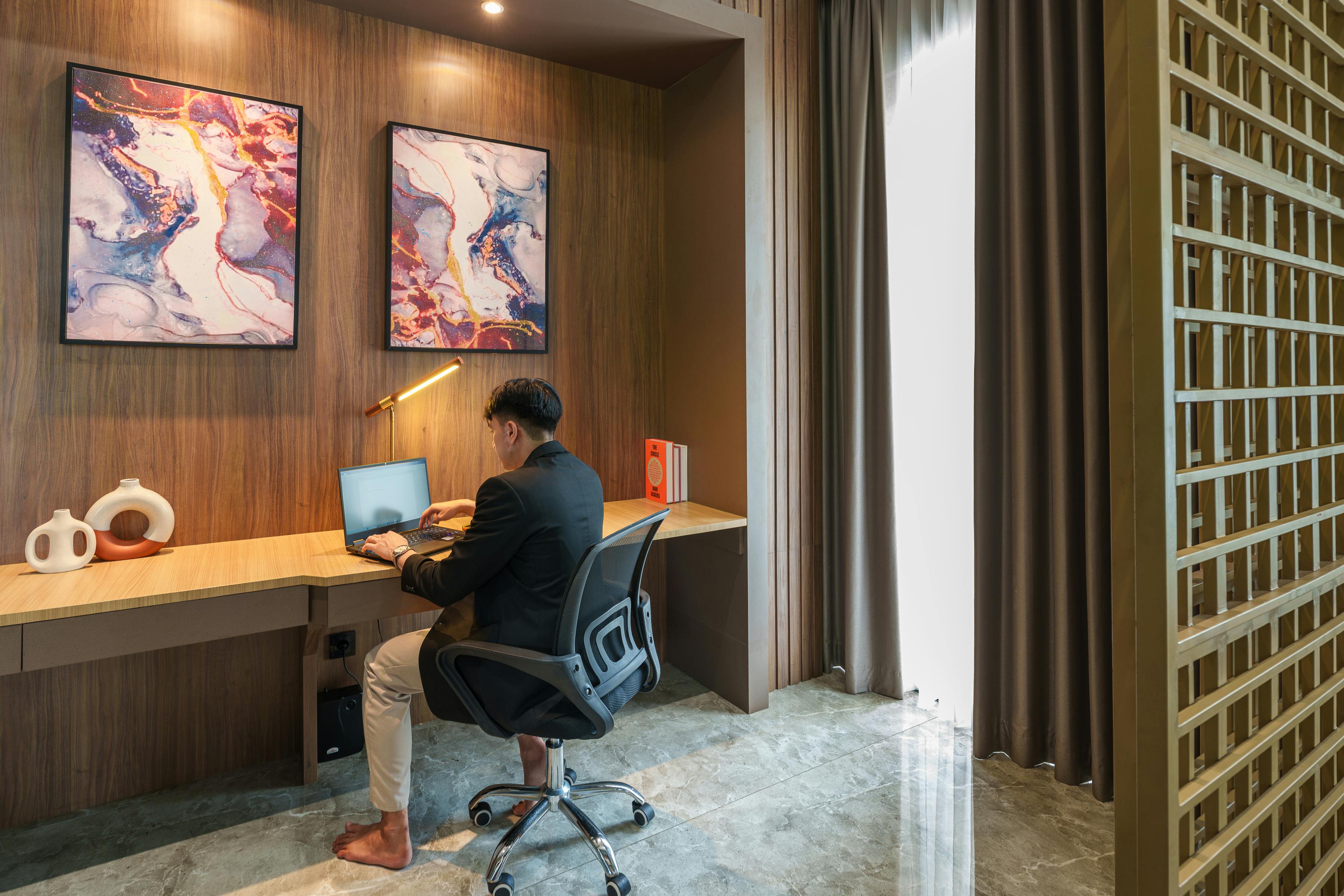Updating Benefits to Match Today's Needs w/ Martin Huack
Martin has held numerous leadership positions in the HR, talent and recruitment space and is on the advisory board for various talent and DEI tech companies. In 2017, he founded the People People Group, a 1300 member Slack group for HR, Recruitment and talent acquisition professionals.
How has the elimination of such benefits impacted the internal culture of organizations and what is replacing them?
I think that’s a great question and even before COVID one of the big things people were talking about is how bean bag chairs, ping pong tables, and beer Fridays only go so far from an employee experience standpoint. While all those benefits are helpful, I think adapting to this new norm (of working from home) puts a spotlight on what is actually important. Which is what everyone has been trying to do, but prior to COVID we weren’t in a state of really questioning things. It was more like if my company has these 'fun' benefits, it is fun and I do appreciate it, but I think what a lot of people were going through as COVID continued is this reassessment of almost everything. People were taking more time thinking about ‘what is really important to me?’. Am I working in a company that aligns with my personal goals? My personal values?
This has nothing to do with all the perks and benefits companies were offering previously. It's easy to look at the large tech companies like the Googles and the Facebooks of the world and mimic their behaviour. Even if you're much smaller you try to figure out how you can make your workplace just as fun as it is at Google. Those are two very different things in the sense that Google is a billion/trillion dollar Corporation and is no longer a startup, but for some reason those companies still have that association with having a startup culture. Now there’s been this realization that it makes more sense for us to follow what the best 200-person companies are doing for their employees versus copying what large corporate enterprises are doing.
As a leader in the HR space can you speak to the changes you've seen in priorities throughout 2020 in terms of what kind of value organizations want to deliver to their employees, such as DEI, remote teamwork, reducing burnout etc.?
Of course, and you are very kind to mention me being a leader, but honestly I've just recently dipped my toes into the HR world. My background is largely recruitment and that means I worked very closely with HR people but it’s only been the last year that I have worked directly in HR. So I consider myself a beginner in certain areas and my perspective is very fresh since I’ve put on my HR hat fairly recently. Companies have been changing their priorities to focus on mental health and reducing burnout. They have been scrambling to adapt to put more things into place. So, one of the main things all organizations had as part of their benefits package was their EAP (Employee Assistance Program).
"All the dollars that you might spend towards the ping pong tables, foosball tables, or beer Friday budgets will be allocated towards more tangible things so that companies can offer better versions of EAPs."
My guess is that we are going to see an evolution in utilizing the EAP. Companies that already provide that are going to start enriching what that actually means to deliver more services relating to areas like mental health. All the dollars that you might spend towards the ping pong tables, foosball tables, or beer Friday budgets will be allocated towards more tangible things so that companies can offer better versions of EAPs.
Now that the commute is gone for most of the workforce, there is no reason or excuse to say, ‘oh I'm going to hang back at work for half an hour and hang out with some colleagues.’ The nature of our work has become more digitized. Since you stare at a screen all day, the last thing you want to do at the end of the day is to continue staring at the screen. I can spend half an hour more playing video games with friends or I can spend half an hour more with my family or go for a walk, which I never used to do but is important to do. So, companies are scrambling and have been coming up with creative ways on how to re-engage with the workforce that depicts the companies’ great community and culture. It was good when we were all together, but now, how to make you recreate that version? I don't think it's a copy and paste sort of situation, it has to be something completely new. Some companies are thinking of unique methods, but some companies are still struggling to figure out what that looks like.

With the recent announcement of a vaccine, we are seeing the beginning of the end of this pandemic. What changes for employee benefits do you think are here to stay especially with the rise of popularity for remote work?
I think that remote work is being tested now more than ever. Some companies have work from home policies that were strict and other companies had a more leeway. However, I think working from home is here to stay. Companies must change and adapt towards being very flexible with work from home policies. Especially if they want to be competitive from a talent perspective and employee retention perspective. Strictly from a Toronto perspective, and this is the largest economic factor, we are a large major city where the housing market is insane and the tech industry employs the most consistent average of younger age employees. The clearest path to long-term financial stability is owning a home.
Yet, this is such a difficult thing to achieve in the major metro areas. If your company offers complete remote work from home opportunities and you can feel confident that you will never get called into the office and have to drive three hours in to come in, it opens up the entire North American geography. People can start saving money by not having to pay crazy ridiculous rent just to be close to the good, high paying positions. We are just starting to see this trend and I don't think we're even seeing what is actually resulting from that. This is probably the largest and most impactful thing that COVID-19 has brought on. If your company is fully remote, you are effectively giving your employees the opportunity for home ownership where they normally might not, especially if you're based in a major metro area. That is a big leap for a company to make and large organizations will take some time to do that. I've had a lot of friends say they are getting out of the city and are buying a house now, which they would not have done within the next five years, under the premise that they would still have their position because of their talent. I think that's the biggest perk that is probably not being talked about or discussed too much.
"People can start saving money by not having to pay crazy ridiculous rent just to be close to the good, high paying positions"
How do you think the shift in employee benefits is going to impact retaining and attracting talent, both from a working from home perspective and everything else you may be able to offer?
I think it is going to be more individualized; the benefits are going to be broader. Some of the benefits that were previously offered were more about what is good for the whole company versus now, when companies question how benefits can address the individual’s specific needs and interests. One of the things that you can look at and can assume from all of this, is that COVID-19 hasn't been a pleasant experience and probably has the biggest impact on global mental health ever. We will start seeing a much better coverage from a pharmaceutical perspective and a much bigger coverage from access to some form of therapy. There will be a bigger focus on wellness and prevention in the sense that you might not be burned out right now, but what steps are you taking to prevent this from happening? Since learning and development play key roles in this process, companies will be taking on the responsibility of benefiting employees through ensuring that they know how to manage their time or manage their bandwidth in general.
"If your company is fully remote, you are effectively giving your employees the opportunity for home ownership where they normally might not, especially if you're based in a major metro area."
Do you have any insights or reflections on how the People & Culture and even retention/acquisition space is going to evolve moving forward?
Well, we are starting to see positions like Head of Remote Work or Director of Distributed Teams. So I think that is a natural reaction to a problem companies don't necessarily know how to solve. For example, we have this problem that we are all going to be doing this thing for we don't know however long, but we all still have the same priorities that we always did like building our product or shipping our product or providing our service etc. But it is a full-time job figuring out how to serve your people in this new paradigm. I think the evolution is that culture teams are going to have people dedicated to this exact challenge.
This is not necessarily a challenge, but instead, a huge opportunity. From a retention and talent attraction perspective, if you do remote work right, you will stand out as an organization. There are organizations that have to be office-based, but for the ones that aren't, should go all-in towards what remote work looks like, even from a financial perspective. In the sense that you have an office space and you don't necessarily need an office space because you've been working effectively or your product and service is still being offered and nobody has been in the office for 10 months. So, do you really need that office space to function? Now you have all that budget from the office space and everything related to that, whether it is fixing the HVAC or cleaning the office or providing snacks to employees etc. All that money can go towards something else. The office was specifically for the culture of the employees and now, companies must figure out how to redistribute that. Because it is so new, people in teams are going to change. You're going to start seeing people operation teams really having someone dedicated to discovering what is the companies’ experience and employee experience now. Working in the office is completely different than working from home. The employee experience and culture needs to be rewritten and innovated.
That is a great perspective of where we're going to see this space go in the next few months. This has been such a fascinating conversation. Martin, thank you for sharing your expertise and knowledge regarding the fast changing landscape of employee benefits.
Shout out to The People People Group, an awesome slack community of HR / Recruitment professionals. Head to www.thepeoplepeoplegroup.com if you'd like to apply to join.





